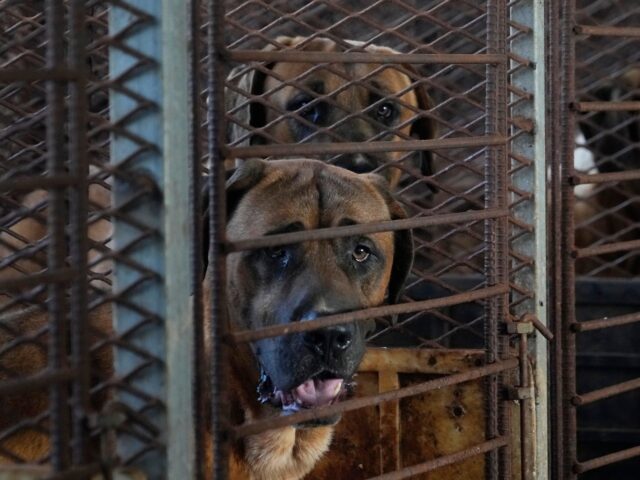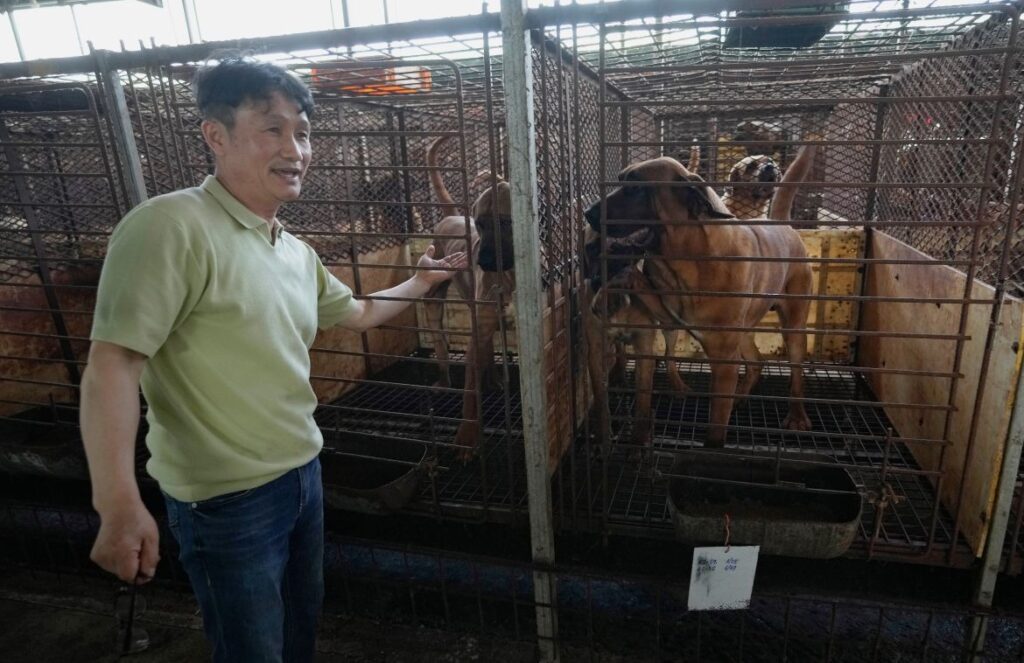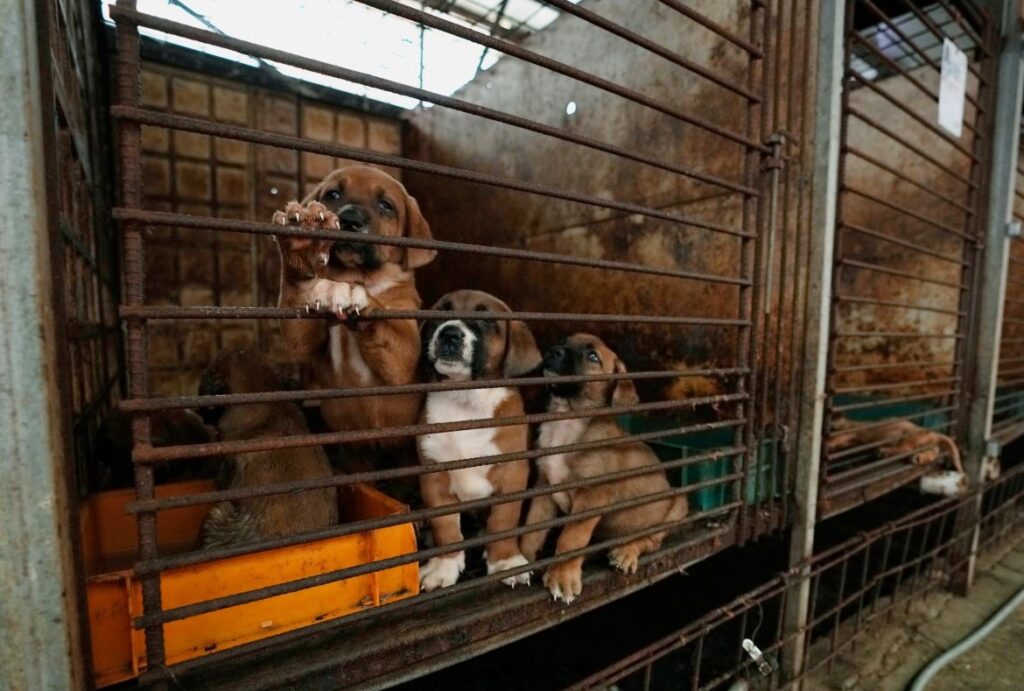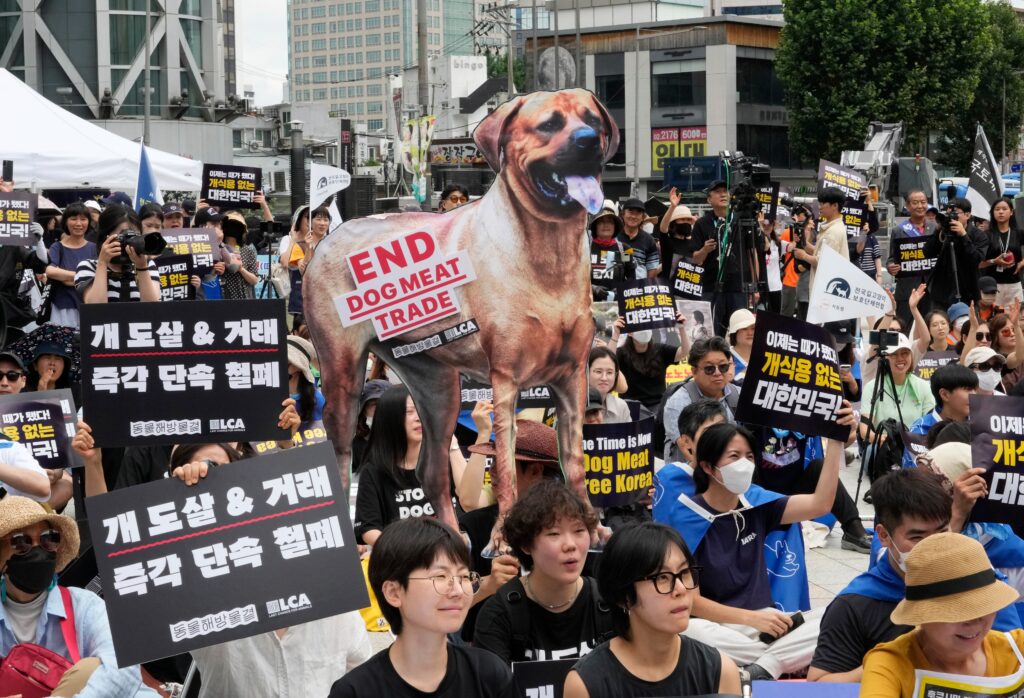
Dog meat consumption is a significant topic of controversy in South Korea. It's a centuries-old practice that is not explicitly banned or legalized.
Dog meat farmer Kim Jong-kil, 57, approaches the rusty cages that house different kinds of animals he sells for their meat at his farm in Pyeongtaek City.
According to Kim, he is proud of the dog meat farm that supported his family for over 27 years.
He is, however, upset because of the growing attempts by activists and politicians to ban the business, which he will be turning over to his children.
“It's more than just feeling bad. I absolutely oppose these moves, and we'll mobilize all our means to resist it,” stated Kim.
Dog meat consumption is a very old practice on the Korean Peninsula. There has been a belief that it is a source of stamina on hot summer days.
The problem is that this practice is not banned or legalized in South Korea.
But in this day and age, there is a significant growth of people wanting it to be outlawed due to an increase in public awareness of animal rights.
They also worry about the image of South Korea internationally.

Activists or the anti-dog meat campaign recently got a huge boost when the country's first lady supported the movement. On top of that, two lawmakers already submitted bills to outlaw the dog meat trade.
Han Jeoungae, one of the lawmakers who submitted legislation to ban the dog meat industry, said: “Foreigners think South Korea is a cultural powerhouse. But the more K-culture increases its international standing, the bigger shock foreigners experience over our dog meat consumption.”
However, the possibility of passage of an anti-dog meat law is still unclear since farmers, restaurant owners, and other individuals in the dog meat industry started to protest.
Surveys say that one in three South Koreans oppose the banning of this practice, but most people don't eat dog meat anymore.
Dog meat consumption also happens in North Korea, China, Vietnam, Indonesia, and some African countries such as Ghana, Cameroon, Congo, and Nigeria.
RELATED: 17 Countries That Eat Dogs and Why They Do It [Updated 2023]
Earlier this year, the Tomohon Extreme Market on the island of Sulawesi in Indonesia announced the banning of dog and cat slaughter due to many years of campaigns by local activists and celebrities.
According to the anti-animal cruelty group Humane Society International, this market will be the first market in Indonesia to outlaw dog and cat meat.
The South Korean meat industry receives more attention internationally due to its wealthy reputation and its modern democracy.
Also, it is the only nation with industrial-scale farms.
And according to a dog farmers' association, South Korean farms often have more than 500 dogs.
Kim's farm is one the country's largest, with over 7,000 dogs. The farm was relatively clean, but there was a strong stench in some areas.
Dogs are kept in cages and fed food waste and ground chicken. They don't get enough exercise since they are rarely released, and they are usually sold for meat one year after birth.
According to Kim, two of his children, 29 and 31, are helping him run the farm, and he said that the business is still going well. He believes that dogs that are bred for their meat are different from pets or companion animals.
There are still plenty of dog meat restaurants in the countryside of South Korea, but it'll be difficult to spot them downtown in Seoul.
“I only earn one-third of the money I used to make. Young people don’t come here. Only ailing old people come for lunch.
I tell my elderly customers to come and eat my food more frequently before it’s banned, ”said Yoon Chu-wol, 77, owner of a dog meat restaurant in Seoul’s Kyungdong traditional market.
Farmers are now also being carefully observed by officials due to increased negative public opinion.
They complain that they have encountered plenty of repeated official visits in response to complaints filed by activists and other people accusing them of animal abuse and other misconduct.
Kim stated that there are more than 90 petitions filed against his farm during a recent four-month span.
General secretary of the Dog Farmers' Association, Son Won Hak, said that many farms have closed in recent years because of the deflation of dog meat prices and lower demand.
He believes that it results from the campaigns and unfair media reports focusing on farms with bad conditions.
On the other hand, other observers believe that dog meat consumption is already declining due to younger people avoiding it.
“Quite honestly, I’d like to quit my job (as a farmer) tomorrow. We can’t confidently tell our children that we’re raising dogs,”
When my friends called me, they said ‘Hey, are you still running a dog meat farm? Isn’t it illegal?’” Son said.

According to the Dog Farmers' Association, the number of farms in South Korea has significantly dropped by half from a few years ago. There is also a drop in slaughtered dogs.
Each year, about 700,000 to 1 million dogs are slaughtered, declining from several million around 10 to 20 years ago.
However, activists countered that the farmers' estimates were exaggerated to show that their business is too big to eliminate.
In late 2021, South Korea launched a government-civilian task force to consider banning dog meat at the suggestion of then-President Moon Jae-in.
Members of the committee include farmers and animal rights activists.
They have met more than 20 times but still haven't reached any accord because of disputes over compensation problems.
Agriculture officials declined to reveal what was discussed in the closed-door meetings. However, they said that the government wants to eliminate dog meat consumption based on public consensus.
First Lady Kim Keon Hee, the wife of current President Yoon Suk Yeol, said in a meeting with activists last April that she hopes to end dog meat consumption.
Soon after that, farmers responded with rallies and formal complaints against Kim for allegedly damaging their businesses.
According to Han, one of the lawmakers, there are highly positive appraises, and other influential figures came to speak out against dog meat consumption.
She stated that the bill offers support programs for farmers agreeing to close their farms. They would be given money to tear down their facilities, vocational training, employment assistance, and other benefits.

However, Ju Yeongbong, an official of the farmers association, said that they would want to continue for about 20 more years until their main customers, and older people, die, allowing the business to disappear naturally.
Borami Seo, director of the South Korea office of the Humane Society Internation, opposed this idea as she wouldn't want to continue killing millions of dogs for such a long period.












